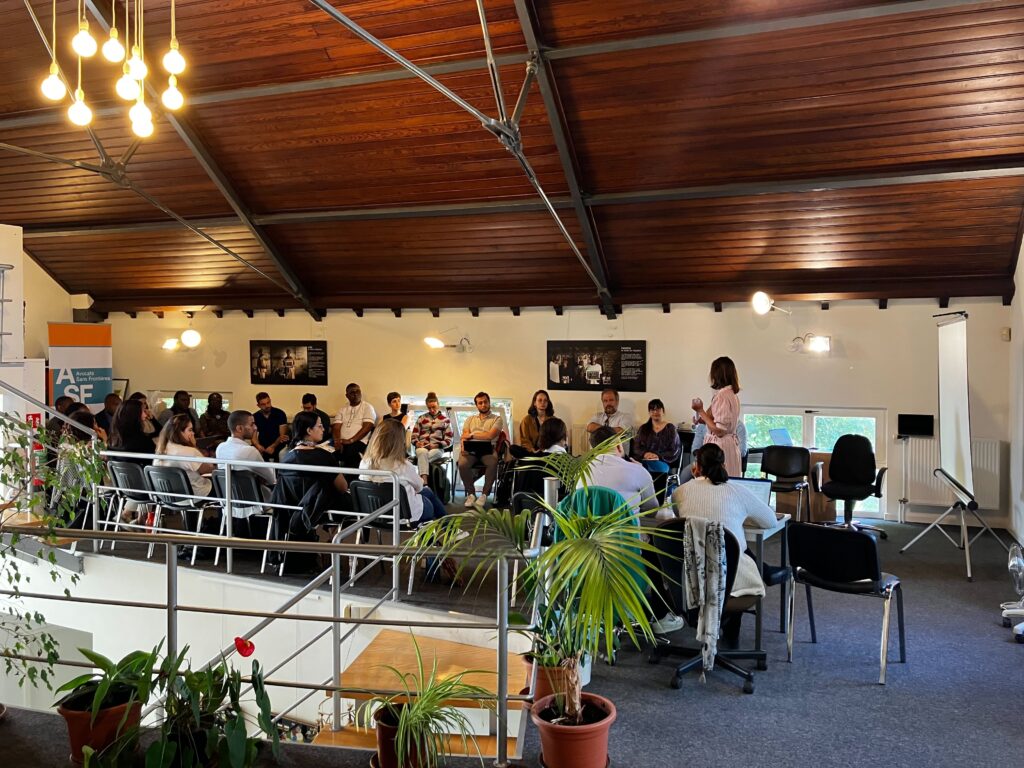
This article is part of ASF’s 2022 annual report.
In order to develop an action that best promotes its mandate and is consistent with the specific needs of the national contexts it is involved in, ASF relies on solid analyses of the issues in the countries where it operates. Being anchored in the realities of the countries is essential in order to develop contextualised expertise, to build strategic partnerships at the local level and to be able to put in place relevant and qualitative actions for the local populations.
Furthermore, the issues we address do not stop at borders and often have transnational dimensions.
To meet these requirements, ASF has been developing regional approaches for several years through its regional hubs in the Euro-Mediterranean region and in East Africa, with offices in Tunis and Kampala respectively.
These regional offices guarantee the necessary proximity to the beneficiaries of the actions and local partners in order to strengthen ASF’s presence in the region. They promote the development of their actions by building on existing expertise and networks.
The creation of these hubs is also part of the organisation’s decentralisation process. One of their functions is to strengthen the strategic dialogue between the different offices and to ensure that the perspective, experiences and expertise developed at the regional level feed into ASF’s global approaches.
The choice to prioritise the creation of these two regional offices was guided by factors both internal and external to the organisation:
- The choice to strengthen our presence in regions where we have demonstrated our added value, our ability to mobilise relevant stakeholders and our relationships with national and international stakeholders
- The presence of an ASF office with significant experience of the regional context
- The identification of transnational issues
Main functions of the hubs
1) Strategic development and guidance
The hubs provide support and guidance to existing missions, and the implementation of actions that are developed in other countries of the region or at the regional level.
2) Expertise and Knowledge
The hubs produce relevant and contextualised expertise based on data collected in the field and linked to the organisation’s advocacy strategies.
3) International advocacy and networking
The hubs provide support to networks, which will thus be able to benefit from appropriate assistance in the development, monitoring and evaluation of influence strategies. While national issues remain the responsibility of the country offices, the hub is more specifically interested in supporting networks at the international level in order to influence the development of public policies.
4) Capacity building
This involves capacity building for country teams in the region, in areas that are functional to the development of intervention strategies and on the basis of a soft peer-reinforcement approach.
This strategy of strengthening regional dynamics has proven its worth in the first year of setting up regional offices:
- Regional projects have already been launched in East Africa and in the Euro-Med region.
- This has enabled us to initiate actions at the level of regional bodies, such as the African Court on Human and Peoples’ Rights in Arusha.
- It allows us to develop actions in countries where we do not have a permanent team, such as Tanzania or Kenya.
- Rationalisation and pooling of human resources through the creation of regional functions, covering actions in several countries



